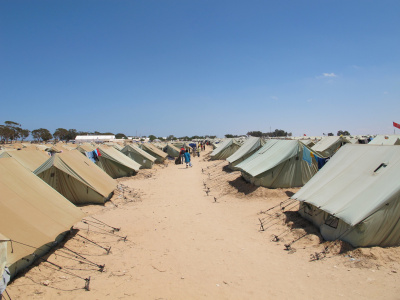
Protecting migrants and refugees in North Africa: Challenges and opportunities for reform
Looking at how the EU and its member states can support migration governance and protection systems in Morocco, Tunisia, Algeria and Egypt.
Summary
This paper looks at asylum, reception and migrant protection systems in Morocco, Tunisia, Algeria and Egypt. It seeks to understand some of the dynamics driving or preventing reform of these systems and proposes some initial entry points for international cooperation.
The new European pact on migration and asylum puts renewed emphasis on the EU’s partnerships with third countries, and over the years the EU has already worked towards developing closer migration partnerships with North African countries, albeit with varying degrees of success. The four countries covered by this study are countries of origin, transit and destination, and each is characterised by complex displacement and migration dynamics. They have shown very differing levels of interest to reform reception, asylum and migrant protection systems, and to cooperate closely with the EU on migration issues.
COVID-19 has exacerbated many of the existing political and economic issues faced by these countries, including high youth employment and a deterioration of public services, posing renewed challenges for local populations and migrant populations alike. This means that any cooperation will need to include a strong understanding of underlying political interests, local contexts and capacities. We map out some of the factors influencing prospects for reforming reception and asylum systems in these four countries, and indicate some initial ideas for how the EU and its member states can offer support and help strengthen migration governance and protection systems in the region.




